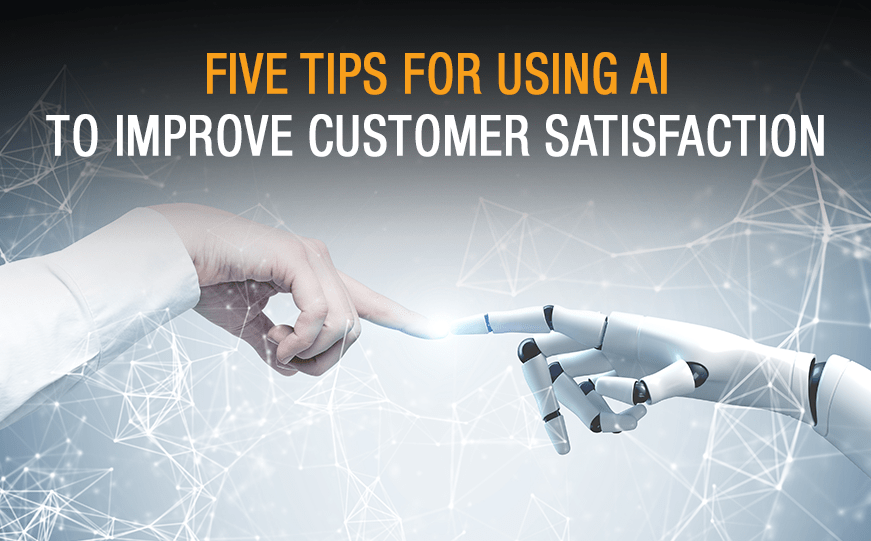Generative AI is transforming industries by offering innovative ways to craft unique experiences. And provide personalized solution recommendations.
But it’s in customer service where AI is playing an increasingly central role for building product brands.
Gartner predicts that by 2025, 80% of customer service and support organizations will be applying generative AI technology in some form to empower agent productivity. And improve customer experience.
Concerns for potential conflict between AI and human finesse – in customer service – is not an either/or situation. Rather, being late to the AI evolution may well be a greater liability. Delivering an exceptional customer experience today, requires an artful balance between smart technology and personal interaction.
In building materials marketing, where competition is growing fierce, utilizing this technology can set brands apart. The ability to tailor interactions, by predicting needs and streamlining processes – through AI-driven solutions – allows brands to foster stronger relationships with customers. Ultimately leading to increased loyalty.
And sales success.
Yes, fear-of-missing-out is very real. After all, the leader in each channel category will create a sustainable… and highly competitive advantage.
Understanding the Role of Generative AI in Customer Service
Generative AI creates new content based on existing data. For builder products, generative AI can enhance customer service by automating responses. Creating personalized content. And providing tailored recommendations.
For example, a customer inquiring about “sustainable building” materials could receive instant, AI-generated recommendations… based on current green trends, project specifications and available products. Not only saving time – but also ensuring that the customer receives the most relevant information – aligning sales & marketing to create a seamless experience.

So, how does this work?
Consider the current business model from New Zealand-based Fisher & Paykel. The appliance brand recently added Agentforce, as a layer on the Salesforce Platform which many CRM programs leverage. The system enables marketing teams to build and deploy AI “agents” that can autonomously take action across business functions. In this case, helping Fisher & Paykel deliver around-the-clock support.
And to provide experiences that are in keeping with its premium appliances.
By delegating more routine tasks to “agents”… Fisher & Paykel’s representatives will have more time to invest in building human relationship missions, that have been proven to increase sales.
Creating Distinct Experiences with Generative AI
The ability to create distinct customer experiences is crucial when marketing for construction. With generative AI, building product brands can go beyond standardized interactions. And instead, deliver experiences… that resonate on a deeper level. AI can analyze past interactions. Project requirements. And even determine emotional cues – to create personalized experiences – that address specific preferences.
Consider the use of AI-driven chatbots in the building product industry. These chatbots can engage with customers in real-time. Offering immediate support. And answering technical questions about product solutions. By leveraging generative AI, these chatbots can leapfrog over scripted responses – by offering dynamic, context-aware conversations – that mirror intimate human interactions. This level of engagement helps build trust. While reinforcing a brand’s commitment to customer satisfaction.
How about another application: content creation.
Generative AI can produce customized product specification descriptions that cater to the unique needs of architects. As well as promotional offers targeted to contractors. The result? Helping to establish a brand as a valuable partner in both the design… and building processes.
Making Personalized Recommendations
Providing personalized recommendations can significantly impact customer decision-making. Generative AI excels in this area by analyzing vast amounts of data beyond a single audience member’s preference. Consider how dovetailing unique project details and industry trends can better generate more useful installation recommendations. Helping customers make informed decisions while positioning the brand as a knowledgeable, trusted and reliable resource.
For instance, a trade professional on a commercial building project may need guidance on selecting the ideal insulation alternatives. By leveraging generative AI, the brand partner can analyze that project’s specifications – such as building type, climate considerations and budget constraints – to recommend the most suitable solutions. This personalized approach simplifies decision-making. And just as importantly, helps to increase traction towards a sale.
Integrating Generative AI into the Marketing Plan
For building product brands, generative AI should complement existing marketing efforts – enhancing rather than replacing – traditional strategies. To achieve this, consider the following best practices:
- Start with Clear Objectives: Define specific goals for leveraging generative AI in customer service. Identify if the priority is to improve response times? Or, increase personalization of content? Clear objectives will guide the roll out… that can be scaled following incremental milestones.
- Invest in Quality Data: Generative AI relies on large datasets to function effectively. Ensure that the data used is accurate, relevant and up-to-date to generate precise and meaningful content.
- Focus on Personalization: Leverage generative AI to create personalized experiences at every touchpoint. From targeted product recommendations – to tailored communications – personalization fosters stronger relationships with customers.
- Monitor and Optimize Performance: Regularly evaluate the performance of AI-driven initiatives. Use analytics to track customer engagement, satisfaction levels and sales outcomes. Continuous monitoring allows for optimization. And ensures that the AI solutions align with evolving customer needs. Leadership will appreciate metrics on how AI is helping reach key goals… whether they be improved customer satisfaction or speed of service.
- Ensure Ethical Use of AI to Build Trust: Always maintain transparency in AI-driven interactions. Customers should be aware when they are interacting with AI. And of course, their data privacy must be safeguarded.
Generative AI offers building product brands a powerful tool for enhancing customer service… creating distinct experiences. By strategically integrating AI into an integrated marketing program, brand promises can be differentiated in a competitive market.
Building stronger customer relationships.
And driving business growth.
If you’re interested in exploring how proven technologies and processes can better align your sales & marketing, that’s our specialty. Send an email to Steve at sk@kleberandassociates.com to get the conversation started with our team.




